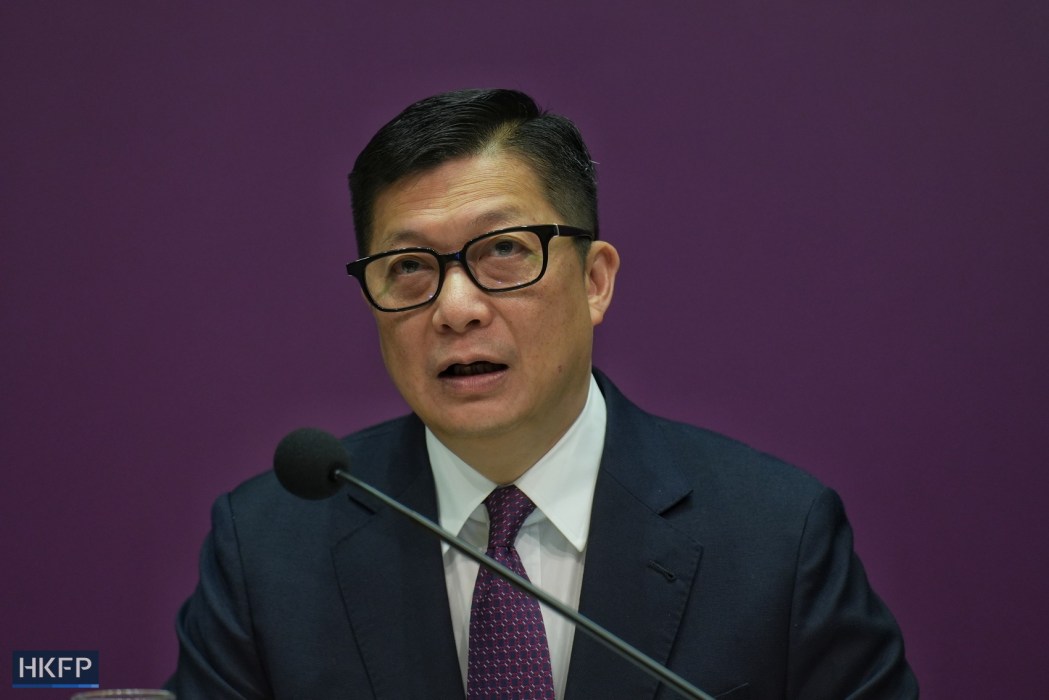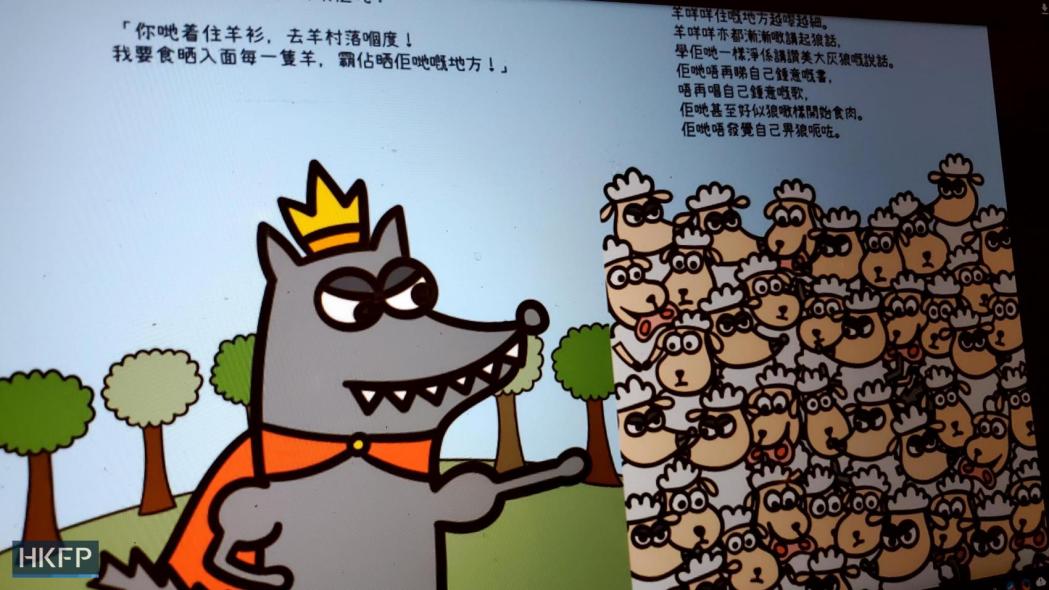Hong Kong’s upcoming national security law should increase the penalties for sedition, security minister Chris Tang has said, describing the current two-year maximum prison term for a first offence as “insufficient.”
Tang and Deputy Secretary for Justice Cheung Kwok-kwan met the press on Wednesday after exchanging views with lawmakers about Article 23 – the city’s homegrown national security law due to be passed by the Legislative Council this year.

More than three years after a Beijing-imposed national security law came into force, Hong Kong authorities began the process of enacting a new domestic security law – as mandated by Article 23 of the city’s Basic Law or mini-constitution. A four-week public consultation period ends next Wednesday.
The law will cover new offences against to safeguard against activities such as “external interference,” “sabotage activities,” and “insurrection. ” It also provides a definition of “state secrets,” and introduces new measures for suspects, including barring detainees from consulting specific lawyers.

It also seeks to broaden the definition of “seditious intention” and raise the penalty for sedition when compared with the current colonial-era law which was revived after half a century.
When asked why the government wants a tougher penalty, Tang mentioned the sedition case linked to a series of children’s picture books about sheep and wolves.
In September 2022, five Hong Kong speech therapists were sentenced to 19 months behind bars over publishing a series of illustrated books that according to the judge effectively “brainwashed” young readers.

“It [the case of the children’s books] uses misleading information to incite people not to believe in the government, to hate the government, and therefore trigger chaos in society. That’s a very serious crime, ” Tang said in Cantonse, “We reviewed the situation and considered the current penalty is insufficient. We should set a sufficient penalty to reflect the impact these offences have on national security. “
He did not say what he thought the punishment should be and the official consultation document on the new law does not suggest possible penalties. The earlier Beijing-imposed legislation gives life imprisonment as the highest penalty for some security offences.
Broadened definition
According to the Article 23 consultation paper, “seditious intention” should cover incitement of hatred against “the fundamental system of the State, ” which is defined as “the socialist system led by the Communist Party of China” according to the Constitution of China.
It also penalises the intention to incite hatred “amongst residents of HKSAR” or “among residents of different regions of China.”

Tang said some Hongkongers are worried that criticising the government may be deemed sedition under the new legislation.
“I want to state again, this will not happen. The sedition law exists now, targeting seditious and provocative speech; criticism which is based on fact and appropriate will not violate the law,” Tang said in Cantonese.
Unwelcome criticism
Jasper Tsang, a pro-establishment politician and former Legislative Council head, has questioned whether the broader definition of seditious intention under the new law “will cast too wide a net.”

Tsang, writing in Ming Pao in early February, also urged the government to be patient when responding to the “concerns and worries” of the general public.
The comments triggered a counter-attack from a member of a pro-establishment party. Joephy Chan, a lawmaker and a member of the Hong Kong Federation of Trade Unions, who criticised Tsang for not showing full support for the legislation.
In comments on YouTube last Friday, Chan said she was confused and felt uncomfortable as a result of Tsang’s comments about the possibility of “casting too wide a net.”
Support HKFP | Policies & Ethics | Error/typo? | Contact Us | Newsletter | Transparency & Annual Report | Apps
Help safeguard press freedom & keep HKFP free for all readers by supporting our team
























